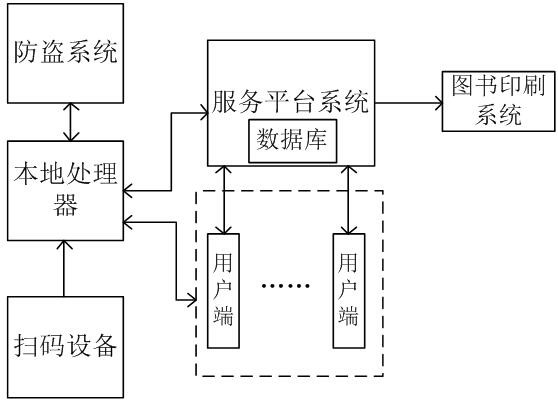A book sharing system and method based on Internet of Things and crowdfunding
A sharing system and Internet of Things technology, applied in the Internet of Things application field of books, can solve the problems of reducing platform investment and difficulty in book sharing, and achieve the effects of improved efficiency, low cost, and simple return process
- Summary
- Abstract
- Description
- Claims
- Application Information
AI Technical Summary
Problems solved by technology
Method used
Image
Examples
Embodiment 1
[0054] Methods of book sharing, including:
[0055] Step 1, the user purchases a book
[0056] User a wants to read a certain book a1, so he submits a book purchase request to the platform. In the request, user a agrees to print the book QR code on book a1 and pay an additional printing fee for it.
[0057] Step 2, Book Printing
[0058] The publishing house prints a single copy for book a1. The single copy is only reprinted and bound on the cover of the regular version. On the cover corresponding to the spine of the book, a book QR code is printed. The book QR code contains the book’s own information, book buyers information and platform information.
[0059] The information of the book itself includes the name, author, type, publishing house, publication time, size, number of pages, etc. of the book. To protect privacy, the user information of the book purchaser is generally only the registration code of the user on the service platform system. The platform information re...
Embodiment 2
[0070] When the book is published, a permanent anti-theft magnetic strip is placed in the book. At this time, the offline library can be an open bookstore. Users can enter, select books on the spot, place and return books by themselves.
[0071] The process of self-serving books:
[0072] User a sends a book delivery instruction to the local processor locally, or sends a book delivery instruction to the local processor on the mobile phone, and then uses the scanning device to scan the QR code of the book, and the scanning device stores the scanned information into the local processor, and the local processor The information is returned to user a, the user confirms, the delivery ends, the local processor uploads the data to the service platform system, and the service platform system updates the database.
[0073] Since the book has an anti-theft magnetic strip, it cannot be taken out of the bookstore after it is released.
[0074] The self-return process is similar to the se...
Embodiment 3
[0078] On the basis of Embodiment 2, the code scanning devices are divided into storage scanning devices and storage scanning devices. In the process of book delivery and return, the user directly uses the QR code of the storage scanning device, and the local processor queries the book. If the previous behavior was to be lent out, and the borrower does not match the book purchaser of the book, it is judged that the current behavior is to return the book, and the billing module is called to charge the previous borrower; if If there is no previous behavior, or the last behavior is being lent out, but the borrower is the book buyer of the book, then it is judged that the current behavior is book delivery, and no billing is performed, or the billing is 0.
PUM
 Login to View More
Login to View More Abstract
Description
Claims
Application Information
 Login to View More
Login to View More - R&D
- Intellectual Property
- Life Sciences
- Materials
- Tech Scout
- Unparalleled Data Quality
- Higher Quality Content
- 60% Fewer Hallucinations
Browse by: Latest US Patents, China's latest patents, Technical Efficacy Thesaurus, Application Domain, Technology Topic, Popular Technical Reports.
© 2025 PatSnap. All rights reserved.Legal|Privacy policy|Modern Slavery Act Transparency Statement|Sitemap|About US| Contact US: help@patsnap.com

